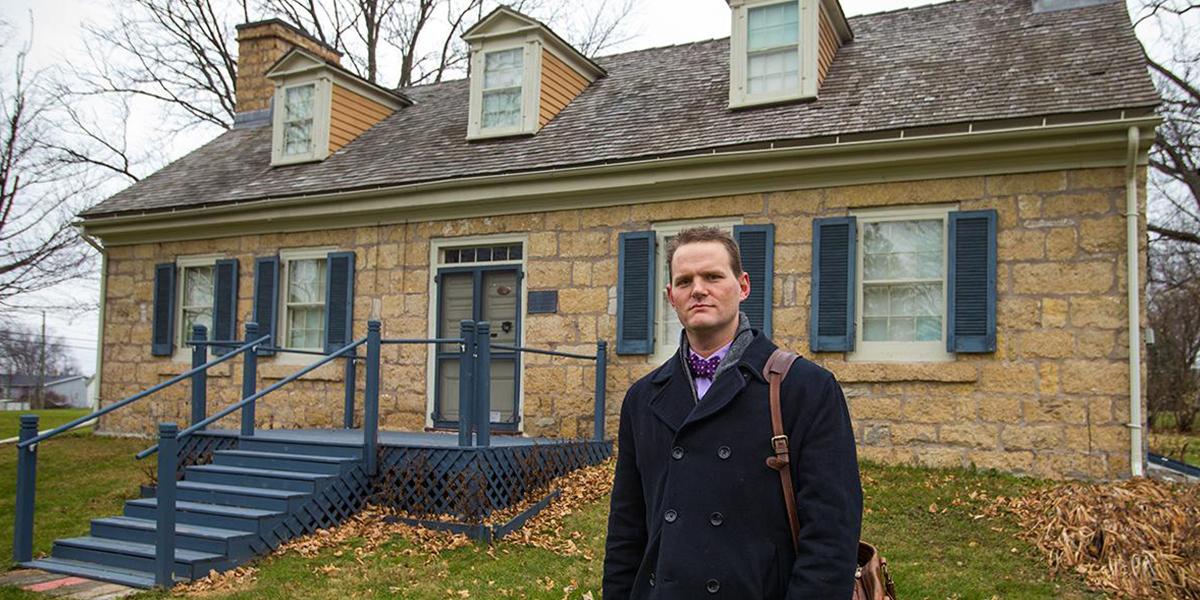
Dr. Eugene Tesdahl, assistant professor of history at the University of Wisconsin-Platteville, is one of three UW-Platteville faculty members selected for the 2019-20 Wisconsin Teaching Fellows and Scholars Program.
The Wisconsin Teaching Fellows and Scholars Program is a statewide professional and instructional development program that offers UW System faculty and teaching academic staff a unique opportunity to collaborate with other exceptional teachers from across the UW System and from various disciplines. The objective of the program is to connect exemplary early-career and late-career teachers into a mentor program. They will each work together and lead efforts to further their individual research.
“Teaching history is my passion,” said Tesdahl. “I am honored to have been selected by UW-Platteville and the University of Wisconsin System for this prestigious award. Not only that, but the experience will help me further improve the way I teach, better serving our talented Pioneers.”
During the year-long program, Tesdahl will attend several events that will enable him to conceptualize a Scholarship of Teaching and Learning project. Tesdahl’s project furthers research about chattel slavery and lead mining in the Driftless Region of Wisconsin, 1826-1865. Tesdahl, with a new undergraduate research team, will examine the contributions of Rachel, Maria and Felix, three African American people John Rountree, the founder of Platteville, illegally enslaved in Platteville in the 1830s. The teaching aim is to offer undergraduate students multiple chances to read, analyze and interact with manuscript primary sources in three local archives in Platteville, Wisconsin; Mineral Point, Wisconsin; and Galena, Illinois. Students also will examine and analyze Rachel’s gravestone in the Rountree family burial plot in Hillside Cemetery in Platteville.
“Not enough people know that, despite slavery being outlawed in the Midwest in the Northwest Ordinance of 1787, in Michigan Territorial status in 1818, in Wisconsin Territorial status in 1836 and in Wisconsin statehood in 1848, hundreds of enslaved African Americans were brought to this area against their will,” explained Tesdahl. “Moreover, appreciating the contributions of free and enslaved African Americans in 1830s Wisconsin restores dignity and complexity to the contributions they made and the injustices they faced.”
Tesdahl will maintain an online poster of his project, participate in a public presentation of his project at the April 2020 Spring Conference on Teaching and Learning at UW-Madison and write a final report and evaluation about the effectiveness of this hands-on approach to history education and welcoming all students into conversations about even uncomfortable historical topics.
Tesdahl, who has been at UW-Platteville since fall 2014, teaches courses in early America, American women’s history, Native American history and public history. He holds degrees in history from Luther College in Decorah, Iowa; Miami University in Oxford, Ohio; and the University of Colorado at Boulder. Originally from a farm in Clarion, Iowa, Tesdahl lives in Platteville with his wife Jasmine, their daughter Aspen and son Harvest.